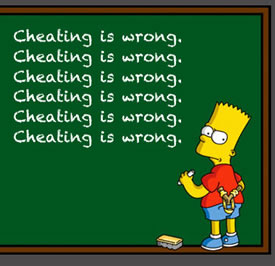Politicians, lawyers, and well-heeled lobbyists are uncommonly gifted at gaming the system.
To that list, you can add sheriffs, prosecutors, judges, and other local and state law enforcement officials.
The concept of gaming the system was put on a rigorous mathematical foundation in the 20th Century, with the development of Chaos Theory, Game Theory, and Drama Theory.
It's been more than a century since Henri Poincaré came up with his path-breaking results leading to the development of Chaos Theory. And it's been more than half a century since John von Neumann and his colleagues developed the Theory of Games.
Today anyone whose business involves the Rule of Law understands the art and practice of Gaming the System.
The Rule of Law has been thoroughly hacked and is now well past its sell-by date.
But while the Rule of Law is now kaput, the same 20th Century mathematics that trashed it also provides the model of the
successor to the now obsolescent Rule of Law.
The Nobel Prize in Economics was awarded in 2007 to three researchers who developed a novel economic theory known as Mechanism Design.
Mechanism Design is a branch of Game Theory that investigates how to design economic systems which induce participants to play both optimally and ethically.
That is, in Mechanism Design, there is no advantage to Gaming the System.
Our existing legal system is manifestly
not crafted in line with the principles of Mechanism Design. Indeed, it is ridiculously easy to game our conventional system of law.
In our present model, it is generally not illegal to game the system, but it is manifestly unethical because it clearly defeats the purpose of having a functional regulatory system in the first place.
Or to put it another way, we do not have a functional regulatory system. We don't even have anything close to one.
But it is theoretically possible to build one from the ground up, using 21st Century concepts in Systems Science,
Cybernetics, and Mathematics.
Labels: Rules-Systems-Cybernetics
 I rise to nominate Government as the classical scapegoat for what is wrong with America.
I rise to nominate Government as the classical scapegoat for what is wrong with America.



